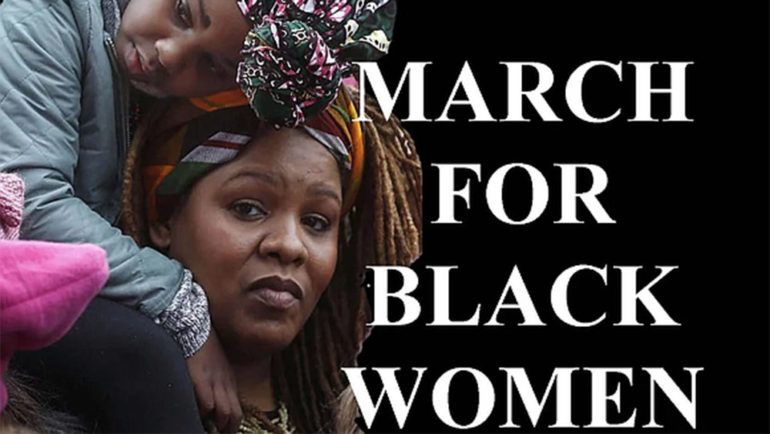WASHINGTON – Saturday’s March for Racial Justice here on the National Mall will include a march for black women to highlight specific issues that impact them and to underscore their role in making social change.
“The leadership, the expertise, the lives of black women are constantly under attack. Our work is constantly being co-opted,” said Monica Simpson, co-chairwoman of the march and executive director of Sister Song, an Atlanta-based national woman of color organization that works to improve the reproductive health for women in marginalized communities.
“Black women have worked for centuries for our voices and leadership to be centered, to be heard and for our lives to matter,” Simpson told Capital News Service.
Simpson said the march is not about separation but about highlighting and confronting issues that directly impact black women. She said that black women’s voices and value in social movements have not been given a platform and it is time to change that.
Farah Tanis, co-founder and executive director of Black Women’s Blueprint, said that with the black women’s march and in the broader movement for social justice, it is important that young black girls be present and have a stake in the discourse about change.
Black Women’s Blueprint, based in Brooklyn, is the lead organizer of the march. The goal of Black Women’s Blueprint is to gain “social, political and economic equality” for African American women and girls.
“The march for black women and the march for racial justice were started around the same time,” Tanis explained.
She said organizing for the march for racial justice began in June, shortly after a Minnesota police officer was acquitted of all charges in connection with the 2016 fatal shooting of Philando Castille, a black man. Just a few days after the acquittal, Seattle police shot and killed 30-year old Charleena Lyles, a black mother who called police to report a burglary. Officers said the woman confronted them with two kitchen knives.
“An entire mobilization happened quickly, within 24 hours of the news, if not less, around the issues of black men being shot and murdered,” Tanis said.
But, she asked, “What about Charleena Lyles, what about all of the other women who are experiencing violence and injustice?”
“We are marching for ourselves, we want our children to march for us, we want our husbands to march for us, we want our partners, our wives, our sons and our fathers to march for us,” Tanis said.
It was important for the protest not only to focus on “cisgender” (someone whose gender identity aligns with their gender at birth) black women but that all black women and girls were included and represented, according to organizers of the march.
Trans Sistas of Color Project, a Detroit-based organization that was started in response to the rising number of trans women experiencing violence and being murdered, is co-leader of the march.
In a statement issued by organizers, they are demanding that an apology be issued by the federal government to all black women for “centuries of abuses, including sexual violence and reproductive violations against black bodies, especially the brutalization of transwomen.”
“This is happening disproportionately to black women and there is so much violence,” said Sevonna Brown, gender justice programs manager at Black Women’s Blueprint.
“There are so many conversations we need to have around violence against black women within black communities, violence against black women within the U.S. continent, violence against black women on an international and global scale,” Brown said. “It’s not just a march. It is a moment of organizing, a moment of deliberate dialogues, a moment of community space and a moment of healing.”
Organizers of the march have received some criticism for having the march on the same day as the Jewish holy day, Yom Kippur. But Tanis said that Sept. 30 “is sacred” as well in the black community.
Black Women’s Blueprint said in a statement: “September 30, 1919, was the culmination of the infamous ‘Red Summer,’ when black sharecroppers dared to organize themselves as the Progressive Farmers and Household Union of America, to demand better pay from white plantation owners. In response, white mobs went on a state-sanctioned killing spree.”
The march is scheduled to start at 8 a.m. at Seward Square in Washington and run until 10 p.m. Similar marches are scheduled for the same day in other cities.

